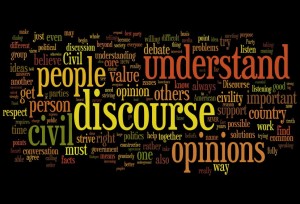 I love civil discourse. I really do. Unfortunately, on the Internet discourse too often devolves to rant, argument, or diatribe rather quickly. Thing is, there were so many excellent (and adamant) responses yesterday to the Amazon Pay-to-Publish post that I really thought it would benefit people who missed the “Comments” section to hear some of the discourse. Since I can’t easily obtain permissions, I won’t mention anyone specifically but I want to include some of the outstanding food for thought here, my responses, and hopefully create more discussion. I only ask one thing: be civil. I have the final say as to which comments get posted and while I almost never exercise my right to censure comments, if they seem too personal and off-topic, I won’t post them. It’s the only rule here.
I love civil discourse. I really do. Unfortunately, on the Internet discourse too often devolves to rant, argument, or diatribe rather quickly. Thing is, there were so many excellent (and adamant) responses yesterday to the Amazon Pay-to-Publish post that I really thought it would benefit people who missed the “Comments” section to hear some of the discourse. Since I can’t easily obtain permissions, I won’t mention anyone specifically but I want to include some of the outstanding food for thought here, my responses, and hopefully create more discussion. I only ask one thing: be civil. I have the final say as to which comments get posted and while I almost never exercise my right to censure comments, if they seem too personal and off-topic, I won’t post them. It’s the only rule here.
It’s been said: “To start an Internet argument, simply state an opinion.” It’s basically true, but I think that can be a good thing. I learn a lot from discourse and if we don’t have that, we have nothing. 😀
Amazon Profit Model
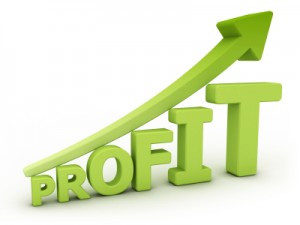 A surprising number of comments I got, both on and off the blog, had to do with Amazon making a lot of money off Indie authors publishing on their site. It really got me to thinking about Amazon’s position with the mass quantity of Indie books out there and what it means for the book giant’s balance sheet. I’m not an accountant, but I put together a little analysis of the “average” self-publishing Indie author and what their digital book does for Amazon’s profits.
A surprising number of comments I got, both on and off the blog, had to do with Amazon making a lot of money off Indie authors publishing on their site. It really got me to thinking about Amazon’s position with the mass quantity of Indie books out there and what it means for the book giant’s balance sheet. I’m not an accountant, but I put together a little analysis of the “average” self-publishing Indie author and what their digital book does for Amazon’s profits.
First we have to establish what the “average” Indie author looks like on Amazon. I am going to make a few semi-educated assumptions about the average Indie just for the sake of making some broad-stroke comparisons:
1. The “average” Indie author maintains a ranking of around 200-500,000 in the Amazon Paid store. This is based on Amazon carrying one million books in their paid store. It stands to reason that the “average” book would be somewhere in the middle of the pack as far as rankings are concerned.
2. Using $0.99 eBooks as the example (since that’s what we’ve been talking about), Amazon takes approximately $0.65 per eBook sale. Amazon obviously has many other costs associated with doing business (infrastructure, employees, etc.) so there is some amount that also must be taken off the top of each transaction. For simplicity I am assuming Amazon sees $0.50 actual profit from each book sale (giving $0.15 or 23% to operating costs).
3. I know from experience that consistent book sales of approximately 100 a month will get you right around the 10K mark in Amazon Paid rankings. To be ranked in the 200-300,000 range, you are making sales somewhere in the neighborhood of 5-10 a month…we’ll go with 10 to be optimistic and also to simplify the math. (These numbers vary, based on other authors’ sales around you, etc. and are an approximation, but I think they’re close enough for the broad-stroke analysis.)
4. Just to evaluate a “pay for publish” scenario for Amazon to litmus test whether it would help or hurt the megastore, I am going to use the $500 number in approximating what they might charge an author to self-publish a book.
5. My final assumption (and this one is pretty iron clad) is that Amazon is out to make money, not appease authors or provide a platform. In other words, they’re a business and profit is what drives them.
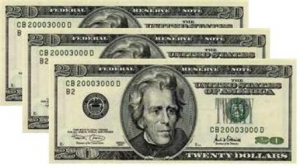 I submit that, based on the above assumptions, the average eBook that Amazon currently publishes free of charge (in other words, middle of the pack average) makes Amazon approximately $60 a year if it continues to sell consistently at a rate of 10 books per month. So to make the requisite $500 (the amount Amazon may ostensibly charge to publish said book) the author would need to sell 1,000 books (or ten times the average). Let’s look at what selling 1,000 books a year means to a book on Amazon:
I submit that, based on the above assumptions, the average eBook that Amazon currently publishes free of charge (in other words, middle of the pack average) makes Amazon approximately $60 a year if it continues to sell consistently at a rate of 10 books per month. So to make the requisite $500 (the amount Amazon may ostensibly charge to publish said book) the author would need to sell 1,000 books (or ten times the average). Let’s look at what selling 1,000 books a year means to a book on Amazon:
As proposed above, selling 1,200 books a year would place an author close to the 10K mark in rankings. So let’s say 1,000 puts the author at the 20K mark, just for comparison purposes. With 1,000,000 eBooks out there, 20K is in the top 2% of sales. Clearly the “average” author/eBook can be nowhere near this mark (averages fall closer to the 50% mark, math nuances notwithstanding).
Based on this analysis, Amazon is clearly losing money on average, offering “free” eBook publishing. Another commenter pointed out that Amazon is willing to take losses to expose future gains (and, I would add, stamp out the competition). Of course they are; they’re a shrewd enterprise. Perhaps the shrewdest the marketplace has ever seen. In my original article I stipulated that Amazon would only begin charging for publication once they had accomplished what they set out to with the original free model. Clearly no business can sustain itself with a perpetual money-losing model and will eventually need to make money again off a particular product, like eBooks.
Authors Will Stop Publishing
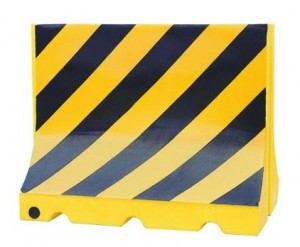 And this hope leads to the final discussion topic that seemed to permeate the comments, emails, etc. that I saw: decreasing the number of authors publishing would not increase the quality of the eBooks out there but would keep quality writers from getting published.
And this hope leads to the final discussion topic that seemed to permeate the comments, emails, etc. that I saw: decreasing the number of authors publishing would not increase the quality of the eBooks out there but would keep quality writers from getting published.
Au contraire.
I don’t believe for a moment that serious authors would be deterred by a publishing fee (particularly one that was $500 or less—probably less). Would there be individual cases where a talented Indie writer would simply not have the funds to publish? Of course. But that is the Capitalism success story: having nothing and yet finding a way. You borrow the $500. You ask a family member. You find an investor (or investors) to put up the $500. There is even a site/business devoted to helping artists propose artistic projects (bands/albums, writers/books, etc.) to prospective investors. It’s called Kickstarter, and an author can propose their new book using excerpts, trailers, etc., set an investment number ($500), and even offer “investors” something for various levels of “investment”, such as signed copies, free digital downloads, etc.
The point is, there are many, many ways for an entrepreneur with a dream to make that dream come true. Since when are writers exempt from the same cost limitations all other entrepreneurs face? I have always wanted to own a bar. For real. Make a great business of it. However most opportunities begin with having to purchase the coveted liquor license, depending on the bar anywhere from $50,000 – $2,000,000. Wow. Maybe I should take the writer’s stance of “how dare you charge me for starting my business? You should give it to me and just pay for your damn liquor license from my profits!”
One Twitter commenter actually claimed the readers should pay for Amazon’s infrastructure costs and the author was only responsible to “create”. Man, I wish I lived in that world. I would be bartending as we speak.
But I digress. The point here is that I believe the talented “starving artist” could find a way to get their book out. Further, a cost to publish would definitely eliminate anyone who only published their writing because it was free to do so. I can’t know what that number is, but certainly when something is FREE, there are people who take advantage of it because it costs them nothing. The percentage of people only willing to publish for no cost who have quality writing to share with the world? Sure, there would be some talented authors who’d fall on their swords, but I think in the long run most would eventually pay to see their words in print. Even if they never did, however, I still submit the higher percentage of “writers” deterred by being asked to invest in their dream would be sub-par on average, awful in some cases.
I am not saying this one step would rid the marketplace of bad books. It wouldn’t. But I believe it WOULD be a step in the right direction.
Authors Are Owed Publication
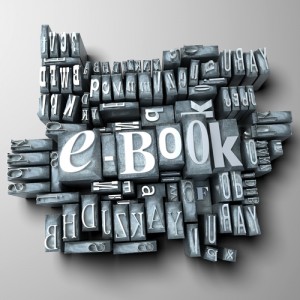 I have to say I was only surprised by one overwhelming sentiment in responses. That somehow writers are “owed” a free eBook platform to showcase their product. I’m not referring to the writers who appreciate the current model (I appreciate the idea of getting something free)…I am referring to writers who toss the gauntlet: “If I am asked to pay to be published, I will not publish!!“Quite a few authors responded with “we don’t have a bunch of extra money laying around to pay to publish our books.”
I have to say I was only surprised by one overwhelming sentiment in responses. That somehow writers are “owed” a free eBook platform to showcase their product. I’m not referring to the writers who appreciate the current model (I appreciate the idea of getting something free)…I am referring to writers who toss the gauntlet: “If I am asked to pay to be published, I will not publish!!“Quite a few authors responded with “we don’t have a bunch of extra money laying around to pay to publish our books.”
What?
Since when is a person not having extra money lying around a concern of businesses charging for their services? (And let’s be reasonable—someone else publishing and offering worldwide distribution for your creative output is indeed a service. :))
“Vanity” publishing is not an inherently negative enterprise—such an outlet exists FOR the Indie. Vanity publishers originated because so many writers could not sell their writing to traditional publishers (i.e. their product was deemed unprofitable). Since when are entrepreneurs owed a free platform to sell their wares (that’s what “writing” is, in this context anyway, dear readers: a BUSINESS).
This only serves to show me how quickly we humans become entitled. Give us free publishing for a couple of years and suddenly it’s an inalienable right.
Here’s the truth (and most of us realize it): it’s not a right. It’s our right as writers to create. If we want our creation to be marketed (i.e. printed and distributed) we either have to find an investor willing to front the money to do so or we have to pay for it ourselves. The idea that somehow writers are above all other creative professions and deserve free publication is, honestly, silly.
And I guarantee you Amazon doesn’t see it that way. Digital publishing with them is not free because of their steadfast position on the starving author’s right to be read; they have a plan. And that plan includes making money in the long run, that much we can all agree on. And to sustain a profitable enterprise, they are eventually going to start charging to publish books. Not to increase the quality of their wares (recall I never said Amazon gives a hoot about the quality; in fact, I said just the opposite: Amazon will make whatever move it makes to increase their profits).
And that, too, is the Capitalistic way.




Bravo! Although, I think it’s difficult to go from “Free” to a $500 charge, any writer who is complaining using the reasons you’ve stated don’t appreciate the new found freedom of self publishing that we’re now afforded. In the past, having a traditional publisher deem your book worthy was the only path a writer could take, unless they wanted to purchase 1000s of books and store them in their garage. (Something that certainly cost a lot more than $500!) Only those truly serious and passionate about their work will not find the fee as the final straw that stops them from persuing their dream. http://www.helpmeselfpublish.com
Thanks for commenting, Andrea! Yes, I certainly DO appreciate the free publication myself and just can’t figure out why so many writers seem to see “free publication” as some kind of right that Amazon (the big meanies) would literally be taking away. Hmm. I also think the fee will likely be lower than $500…I was just thinking of a number that (as you pointed out) would still be much cheaper than the old “self-publishing” route of paying for a run of a thousand copies to sit in your garage! In my original post, though, I did suggest that with a higher “first book” charge they could then lower it to, say, $50 or $100 for the next book, and so on. Another writer suggested something similar with an “upfront” cost the first time and then something lower ($25 per book); yet another commenter said sure, charge $500 but also offer some editing/proofing services, which provides another service to the author (and helps with quality or product). 🙂
Excellent post and great points. Amazon is a business, but as an author, so am I. And with that comes costs – I am amazed at the number of authors who don’t want to pay for anything (editing, good covers, website, training etc) AND they expect everyone to just buy their books. It doesn’t work that way. I’d be up for paying if it would help weed out the “unprofessional” writers, those who see a quick buck but haven’t honed their craft.
And as you say, $500 is way cheaper than the vanity press way typically is (my first book Nephilim Genesis of Evil, which I originally published in 2007, cost way more than that and I had all the books on my hands to sell). Amazon ebooks and CreateSpace are great as far as I’m concerned.
Well done Rob!
I agree and find it hard to believe that anyone could take your views regarding Amazon as anything other than “straight from the gut” truth.
I’m new at this and still working my way through the self-publishing maze. I was surprised to discover Amazon didn’t charge a fee… I was brought up in the “no such thing as a free lunch” generation and I’ve worked and paid for everything in my life. This (self-publishing my work) is no different. I will do what it takes because I believe in myself and my work.
Thank you, and I look forward to reading your posts regarding this issue.
Write on!
I couldn’t get the other post to let me comment so I’ll put it here 🙂
It’s funny to me that people seem to think ‘infrastructure’ as people and warehouses, or that “digital publishing” isn’t costing Amazon anything. Hello, Amazon has to have thousands of servers, software, techie people to make sure it all runs properly, programmers for their sites and on and on. And that doesn’t come cheap (one server can cost well over a hundred thousand). There is a lot of overhead to operate a digital system, and to have people listing books that don’t sell. Keep that in mind when you talk about overhead :).
Bravo, Renee. I build and manage data centers as a day job and so many people think because they can’t “see it” there is little or no cost involved. The current data center I manage is very small by comparison, though it is a lot of the same technology Amazon employes minus an eCommerce back-end. So the economies of scale are at least comparable—our small data center, that wouldn’t house a fraction of one Amazon site, cost between $5 and $10 million. And I am also glad you brought up the overhead in operating and maintaining a system that is five-nines available (redundancy, load-balancing, staffing, monitoring, troubleshooting, etc.). I swear some people see an Amazon online presence and think it’s a few computer nerds in a building somewhere. 😉
Rob,
I agree entirely with your view. Anything worth having is worth paying for, and worth taking a risk (financial) on. A price to play of a few hundred dollars is precious little to get a book out to a vast audience.
SW
Amen, Stephen. So succinctly put. Too many people expect a free lunch. Thanks much for weighing in. 😀
Excellent article, Rob. We are at a very primitive stage of the future publishing industry. We don’t have many models of benevolent dictators or CEOs, but that’s not to say it can’t happen, meaning that Amazon may manage to hold a vision that includes a sense of fair play and integrity. As for future costs, what Amazon doesn’t owe us is a free platform for selling our product. We are fortunate to be able to use it free at this time, but the responsibility for one’s own success or failure to create a livelihood through one’s writing lies where it always has – with the writer.
I hope they do, of course! But yes, not very many models of benevolent dictators or Wall Street execs. 🙁 Thanks so much for the read and comment, Christina!
Alternately, if I don’t have $500 to pay Amazon, I continue to simply publish through everyone else for free instead. B&N. Apple. Sony. Kobo. Smashwords. Etc.
I won’t be the only one. Once this begins to happen, maybe Sony starts offering incentives to authors to be Sony-only. There’s no reason to accept their offer now (unless the incentives are very generous indeed). Not when Amazon offers everything Sony can and more. But when Amazon is charging you $500, and Sony is charging you $0, perhaps it is better to attempt to become the large fish in the small pond. Especially when, if you’re Sony-exclusive, Sony is providing you with tools to sell your book instead of tossing you into the pile with the million other titles out there.
How much longer does Amazon’s content-dominance last?
I think their abundance of content is much more important than you give credit. Do you think Amazon has any clue whatsoever where their indie bestsellers are going to come from? Do you think they had the fainted clue a failed midlist crime writer and an unpublished 26-year-old who writes about vampires would make them millions of dollars?
These people appear because Amazon has access to immense reservoirs of content. If their talent-pile shrinks, their list of breakout authors shrinks with it. At that point, some of the writers on the head of the sales curve are now selling through other websites–perhaps exclusively. How is Amazon Prime doing when Amanda Hocking Mk III has no interest in joining Kindle Select? How are Kindle sales impacted when John Locke, Jr. is only available through Apple?
Amazon essentially broke open the ebook market. They’re trying to maintain a stranglehold on it through a monopoly of content. Every step of their business plan has been about incentivizing authors to provide it and consumers to buy it. So long as they continue to have the most content–and can continue to convince authors to deny that content to other sellers–they will make more money than God.
Or they can choose to become a vanity press.
(Not intended to be combative, by the way. I like your attitude. I just think you’re wrong as hell. 😉 )
LOL. Yes, I can see that you do! One thing about the John Locke / Amanda Hocking examples: businesses don’t generally build plans based on the lightning storm philosophy (i.e. hey, give it away, you never know when we might make a bunch of money off the next John Locke or Amanda Hocking). They look at trending, long-term averages, etc. For every JL or AH there are hundreds of thousands of eBook authors that sell one copy to Mom, one to Dad, and the obligatory self-download. 😀
Locke and Hocking each sold a million copies for Amazon at an average of, say, $0.50 profit per $0.99 sale. That means they “made” Amazon, combined, $1 million. Amazon’s gross sales in Media division (books, dvds, etc.) alone in 2011 were almost $8 billion (add another almost $10 billion for the International stores). Locke and Hocking’s success is just that—Locke and Hockings. There are over a million books housed on Amazon servers. The million dollars made from two authors is less to them than a Starbucks to you or I.
And I feel the same way. Love your attitude and think you are as wrong as a four dollar bill. 😉
Cheers!
I wish I had some amazing input to add, but I think it’s a toss up. I wouldn’t be surprised if Amazon did charge, but I think Amazon making more money would be the biggest effect. Plenty of books would still suck, plenty would still rock.
All I know is, I’d like to get my hands on that four dollar bill Mr. Guthrie spoke of in case Amazon does begin to charge. 🙂
Great article but a complete picture can only be obtained by including those self-pub authors that charge more than 99 cents because they do exist, and I actually believe the 99 cent model might actually dwindle in the not-too-far-off future, simply because that price range is saturated beyond belief. I have a short story priced at .99 but my longer works will be priced slightly higher because of that saturation.
While I think there are plenty of self-pubbers that will be willing to fork out the expense, I think the crowd will lighten considerably simply because many authors (indie included) believe the old adage “money flows to the author, not away from the author.” Any other model brings vanity press to mind, and that term still has a lot of negative connotations to it. Charging to publish will send many authors back to the traditional way path of sending work to the Big 6 and keeping their fingers crossed.
Of course, as someone else suggested, it will also send even more people into the waiting arms of Smashwords, and I don’t think Amazon is willing to do that just yet.
[…] on Writing got some vehement responses to his take on the idea of Pay-to-Publish at Amazon. Read the whole thing, because it’s a great look at how much Amazon makes from indie writers. […]
[…] read more of the overwhelming responses he has received to that blog here RobonWriting.com Responses Share this:TwitterFacebookLike this:LikeBe the first to like this post. […]
People with more money than brains, (which in my case would be about $11.00,) will pay out of sheer vanity to have a published book. After fifteen years on an ever-diminishing Ontario Disability Support Program pension, which is pegged in perpetuity at 2/3 of the poverty line, I’m in no position to put out $500 to publish a book. When I found e-publishing was virtually free, it was a God-send. I give away books for free, and I intend to make money a little further down the road. People who aren’t will to take the time or make the effort to learn will sign up in droves, then sit back and wait to become millionaires. Go for it. Turnabout is fair play and some of them bandy words like ‘entitlement’ around just a little too freely. Think of it as social Darwinism at work in the marketplace. Many people with $500 laying around doing nothing, simply couldn’t write their way out of a wet paper bag, and that’s just fine with me.
I think it important to point out that paying Amazon to publish is NOT the only expense writers would face. They may well have already spent money to have an editor work on their novel and they may even have had to pay someone to format it. That $500-only-hey-c’mon-that-ain’t-so-much-if-you-really-really-mean-it could in reality be $1,500 and up now – possibly quite a lot more than that.
Well tht certainly did make me think about it. I hope they don’t start charging any time soon. I’ve been struggling to publish work because I can’t afford too and I would hate to have this free platform taken away before I can take advantage of it. It also makes me angry to think I would have to pay to publish because I would hate to lose all that money and then still have to fight my way through the slush pile to be noticed. I consider that the price to pay in free publishing. I’m not so unreasonable that I would complain for any of the reasons stated though. I perfectly understand the points you make and consider it a lucky break that it is free for now. I guess they will start charging when the No Talent authors lose interest and inspiration and stop publishing. Then they can make money of te lifetimers like me through publishing fees.
Great post, Rob. First time here and so glad I stopped by.
One thing no one mentioned is that Amazon (i.e. Createspace) used to charge $39 to get your print book a larger distribution. They have recently done away with that fee. So that could be evidence that that they are still trying to suck us in only to trap us when the competition is dead. OR, may it is simply be that they know that ease of use, and accessibilty will bring more authors, via more profits.
I don’t think there is anything wrong with charging a reasonable fee, although I’m glad they are not. And Amazon certainly has every right to do so; afterall, it’s their business.
But honestly, I don’t see that happening anytime soon. I think the notion that they will, is actually fear based and inconsistent with their business model. Amazon has some very slick MBA’s working for them; that’s very clear. But I think they are more interested in accessablity. I don’t think they have the blood sucking mentality that is now working against the vanity publishers. Greed eventually closes itself down because greed is blinding. I don’t think Amazon is a monster, just smart, as in long-term smart.
I may be completely naive, but that’s my opinion.
I self published my first book 10 years ago when the only way to do it was to get print copies and then get out on the road and sell them. I cold-called on hundreds of bookshops, had a regular market stall, booked stalls at Royal Shows, gave author talks–and I sold heaps and covered the outlay costs, which were considerable.
I discovered CreateSpace and the ability to publish on Amazon late last year and I’m still pinching myself that it has cost a fraction of what I paid out all those years ago. (For those who don’t know CreateSpace there are modest charges involved for some services.)
Will I ever get to the stage where I take what we can now do for granted: NEVER.
Alana Woods
Trouble with Smashwords is that, through their service, I only sell a very small percentage of what I sell on Amazon KDP. So, for me, Amazon are the big fellas. I’ll continue to use them in my sales strategy as long as that remains the case. Good, thought provoking post!
As we all know, many authors do not price their books at $0.99 nor do they sell 10 books a month. Many use the 70% model and sell much larger quantities. For simplicity’s sake, let’s use your numbers and say that Amazon makes $60 a year from each indy author pricing at $0.99 selling 120 books a year. Even if all the books in the Amazon Kindle store were indies following this model, Amazon would see a minimum yearly profit of 60 Million. Amazon’s profit margin on indy authors is much larger than 60 Million which is huge considering they created a market that didn’t exist a few years ago. Amazon is well aware that there is a need for this market and that the pie is going to keep growing. I don’t see where keeping 65 cents out of every dollar equals FREE publishing for an author? In reality, this model is much closer to traditional publishing. Amazon knows full well that they are stealing business (and thus dollars) from the big six. That is the plan and the profit. Could Amazon turn around and make more? Yes, of course, but that is not to say that they are not making a killing on an emerging market slated for growth!
I completely agree. My opinion is that Amazon has created a win-win-win. Authors get more “royalty” than in other publishing environments and enjoy more control, Amazon gets its millions of dollars plus millions of dedicated customers (see my comment below), and readers get books at a lower cost than under the traditional model.
Rob — It appears you’re missing a significant factor in your assessment that “Amazon is clearly losing money on average.”
Every ebook sold is a visitor to Amazon, a visitor who on occasion will buy something else besides that ebook (and which is almost guaranteed to be a higher cost). That same visitor will on occasion refer someone else to an Amazon product for purchase. And so on.
Furthermore, all this traffic — the result of millions of ebooks considered, sold, reviewed, etc. — supports Amazon’s position in search rankings. Their search position raises, again, the likelihood of other more-expensive products being purchased. And it keeps Amazon “front of mind” with the general buying public.
Not only that, Amazon’s ebooks authors — who all acknowledge more sales on Amazon than anywhere else — form a legion of Amazon fans who, at least to some degree, may feel an allegiance in their own purchasing. For example, an Amazon ebook author is probably more likely to purchase on Amazon than elsewhere, not to mention more likely to set up Amazon sales widgets on her own website or blog. In other words, as long as Amazon keeps them happy, they are more likely to be evangelical about Amazon in ways beyond their ebooks.
Lastly, the more customers Amazon has, regardless of how they enter or participate in the “ecosystem,” the more effective the company’s economy of scale. Its fixed costs become lower and lower, either per customer or per sale, the more customers and sales it has. How do you think it can offer Amazon Prime, for example, with all its benefits for only $79 a year?
I could go on — because what I’m describing extends out in many, many ways — but I’m guessing you get my point. Simply put, even if Amazon loses money with KDP, it is very likely a highly worthwhile loss leader.
So, no, I don’t agree that Amazon needs to charge for its publishing services, nor do I believe it will, especially at the $500 mark.
I don’t know.
Part of the problem is that writers have been hit with *never pay to be published* mantra for so long that they don’t think being published for free is a right. They think it’s a duty.
And then Amazon has blurred the line between publisher and retailer to such a degree with Kindle that’s there’s also the kneejerk that buyers not sellers pay retailers, because most people still think of Amazon as a retailer.
I mean if you had your hypothetical bar you wouldn’t charge breweries, winaries and distilleries for the honour of you selling their stuff would you? Okay if you had a chain of bars with 90% of all booze drinking customers you probably could since they’d have no choice but no one would call it anything but profiteering. No one pays for shelf space.
What I can see is the equivalent of offline bookshop fees. They don’t charge to stock a book (if they agree to stock it – physical shelf space being more limited than digital) but if you want table or window space you pay for it. Amazon already offer some promotion stuff but they could offer more that doesn’t look bought and which gives those who pay more visibility.
But just trying to charge people for digital shelf space? It would damage their reputation and not really improve quality either.
Becka